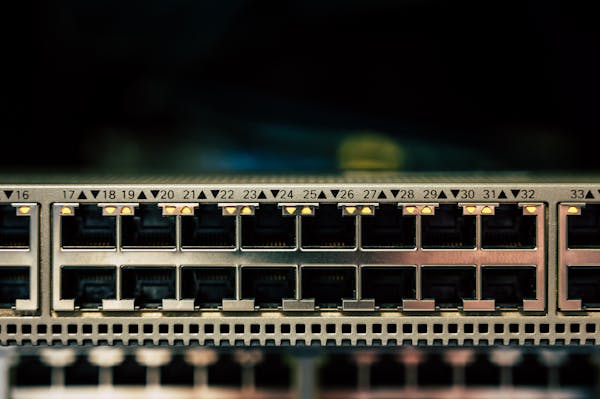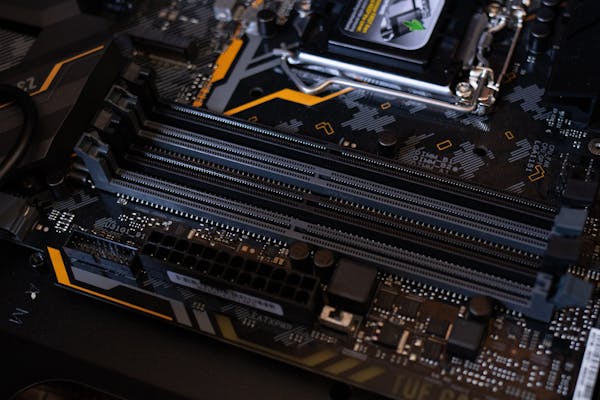
Delving into Dynamic 4G Proxy Servers
In today’s digital landscape, 4G rotating proxies have gained prominence for maintaining online privacy.
An Overview of 4G Rotating Proxies
These proxies leverage cellular data connections to provide changing IPs to users. Unlike static proxies, they offer dynamic IP rotation, improving security.
Source article: rebrand.ly
Mechanism Behind 4G Rotating Proxies
When connected, users receive a 4G network IP. These IPs rotate based on time or requests, making tracking difficult.
Why Opt for 4G Rotating Proxies
- Increased Security: Dynamic IP rotation prevents tracking.
- Bypassing Geo-Restrictions: Changing IPs enable viewing of geo-blocked sites.
- Lowered Detection Rates: Frequent IP changes avoid detection systems.
Use Cases for Mobile Proxies
- Data Extraction: Rotating IPs ensure continuous data collection.proxies facilitate automation.
- Ad Verification: Changing IPs validate ad placements.
- o Consider}
In choosing a proxy service, consider:
- IP Pool Size: A larger pool offers better rotation.
- Switching Mechanisms: Determine if the service offers customizable intervals.
- Regional Availability: Access to multiple regions supports diverse tasks.
Considerations Before Use
- Budget Concerns: 4G proxies often have higher costs compared to other types.
- Network Reliability: Mobile networks can be less stable.
- Compliance Issues: Ensure usage avoids illicit activities.
Conclusion
4G rotating proxies enhance online privacy, positioning them as essential tools in today’s digital age.
Exploring the Technical Mechanisms of Dynamic 4G Proxy Servers
Within the sphere of online anonymity, mobile 4G proxies have become essential components for maintaining user anonymity.
An Overview of 4G Rotating Proxies
4G rotating proxies employ cellular data connections to rotate IP addresses to users. Unlike static proxies, they offer dynamic IP rotation, reducing detection risks.
Operational Dynamics
Once initiated, the proxy server assigns a mobile IP. These IPs are switched periodically, making tracking difficult.
Benefits of Mobile 4G Proxies
- Enhanced Anonymity: Dynamic IP rotation prevents tracking.
- Bypassing Geo-Restrictions: Changing IPs enable viewing of geo-blocked sites.
- Reduced IP Bans: Frequent IP changes avoid detection systems.
Practical Implementations
- Information Gathering: Rotating IPs prevent scraping blocks.
- Automated Posting: Dynamic proxies facilitate automation.
- Ad Verification: Changing IPs validate ad placements.
Selecting a Reliable Provider
When opting for a 4G rotating proxy, consider:
- Number of Available IPs: A larger pool enhances anonymity.
- Rotation Frequency: Determine if the service offers customizable intervals.
- Regional Availability: Access to multiple regions aids in geo-testing.
Potential Challenges
- Cost Implications: 4G proxies may be pricier compared to other types.
- Network Reliability: Mobile networks can be less stable.
- Compliance Issues: Ensure usage aligns with laws.
Conclusion
4G rotating proxies provide dynamic IP solutions, making them invaluable in today’s digital age.
Today’s online landscape, remaining private and get around limitations has become more important than ever. Affiliate marketers, agencies, and SEOs often rely on proxies to change their IPs. Among these, 4G LTE rotating proxy servers have become game-changers.
What makes them better or worse than other options like residential proxies? Let’s break it down.
== What is a 4G Rotating Proxy?
A LTE rotating IP proxy is a proxy that uses real SIM cards connected to mobile networks. These proxies change IPs at preset intervals or upon request, emulating human behavior and reducing the chance of bans or blocks.
== Main Proxy Types
Let’s look at the key proxy types before comparing:
1. **Datacenter Proxies**
– High-speed and cheap, but easily flagged.
2. **Residential Proxies**
– Use IPs assigned to real homes. More reliable, but slower and costlier.
3. **4G Mobile Proxies**
– Use real SIMs on LTE networks. Ideal for automation and stealth.
4. **SOCKS5 Proxies**
– Protocol-based, flexible, used for various apps, not just HTTP.
== Comparison Table
| Feature | 4G Rotating Proxies | Datacenter Proxies | Residential Proxies | SOCKS5 Proxies |
|————————|———————|———————|———————|—————-|
| IP Source | Mobile Network (SIM)| Data Centers | Home IPs | Varies |
| Rotation | Yes (Frequent) | Sometimes | Optional | Manual |
| Ban Resistance | High | Low | Medium | Depends |
| Speed | Medium | High | Low-Medium | High |
| Price | High | Low | Medium | Low-Medium |
| Target Use | Social, Ads, Bots | General Scraping | E-commerce, Research| General |
| Block Detection | Low | High | Medium | Medium |
== Technical Advantages of 4G Rotating Proxies
What gives mobile proxies their edge?
– **Real Device Trust**: Websites trust mobile IPs more than others due to carrier NAT and wide user pools.
– **Shared Reputation**: IPs are shared across many users, making banning a single user risky.
– **Geo-targeted Mobile Carriers**: Rotate between networks in real U.S. cities or countries.
– **Dynamic Rotation**: Can rotate every few minutes or after each request.
– **Bypasses Captchas**: Mobile IPs are less likely to trigger captchas or challenge verifications.
== Where 4G Proxies Win
Let’s be real— if you’re scraping Google or LinkedIn, nothing works better than a solid 4G proxy.
– Instagram and TikTok trust mobile IPs.
– Web scraping? You’ll trigger fewer blocks.
– Ads management across banned zones? Done.
== Where They Fall Short
– **Cost**: They’re not cheap.
– **Speed**: Slower than static datacenter options.
– **Limited Threads**: Some providers limit concurrent usage.
== SOCKS5 vs 4G: Protocol vs Behavior
If you need raw protocol-level control, SOCKS5 is your friend. But they don’t rotate IPs on their own.

| Attribute | 4G Proxy | SOCKS5 Proxy |
|———————|——————–|——————–|
| Protocol Type | HTTP/HTTPS | SOCKS5 (All apps) |
| Rotation | Yes | Manual |
| IP Trust Level | Very High | Medium |
| Use Cases | Social, Ads, Bots | Torrenting, Apps |
== Use Cases Side-by-Side
**4G Rotating Proxies:**
– Social Media Management
– Mobile Ad Verification
– SEO Scraping
– Sneaker Bots / E-com Testing
– Marketplace Automation
**Datacenter Proxies:**
– High-volume scraping (non-sensitive)
– Speed-demanding tasks
– Price-conscious campaigns
**Residential Proxies:**
– E-com price intelligence
– Research tools
– CAPTCHA-heavy targets
**SOCKS5 Proxies:**
– Application-level traffic routing
– Anonymity over torrents
– Bypassing firewalls
== How to Choose the Right One?
Not all proxies are created equal. Here’s how to choose:
– Need speed? Go datacenter.
– Need trust and stealth? Go 4G mobile.
– Need app-level routing? Go SOCKS5.
– Need wide IP pools without rotation? Try residential.
== Future of 4G Rotating Proxies
With AI detection systems growing smarter, only carrier networks are keeping up. We’re seeing:
– 5G proxy rollouts in testing
– Smarter rotation algorithms
– Integration with automation platforms like Jarvee, NextPost, Puppeteer
== Final Verdict
If you’re serious about anonymity, LTE proxies are your best bet. For any campaign that’s stealth-heavy or bot-powered, it’s worth the investment.
== Spintax Conclusion
So, whether you’re an agency scaling campaigns, investing in the right proxy is a make-or-break decision.
They come with a premium, but the ROI makes up for it.
https://www.fortinet.com/resources/cyberglossary/proxy-server
https://en.wikipedia.org/wiki/Proxy_server
https://surfshark.com/blog/proxy-server

Xem các đơn hàng khác
Dich vu thiet ke web Quang Ngai gia re
Xu Hướng Tranh Sơn Dầu 2025 – Cập Nhật Mẫu Mới & Phong Cách Được Ưa Chuộng
Xưởng may áo khoác đồng phục giá rẻ – Mang lại giá trị bền vững
Xưởng may áo khoác – Mang lại giá trị bền vững
Top Review explaining 4G Rotating Proxies with Scraping Now May 2025
Phụ Tùng Đức Anh – Địa Chỉ Cung Cấp Phụ Tùng Ô Tô Chất Lượng, Uy Tín